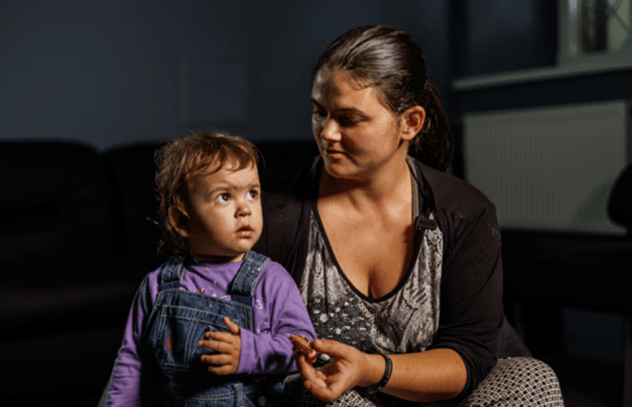

Feature Story
Three Years On: From crisis to prospective recovery
20 February 2025
20 February 2025 20 February 2025Ukraine has been reeling from three years of war since 24 February 2022. One out of two Ukrainians have been affected by the conflict and more than 12 million people need humanitarian assistance and protection while another 6 million have still not been able to return to their homes.
A war-driven economic crisis has severely impacted healthcare funding, putting access to HIV services at risk. With HIV services entirely dependent on external aid and humanitarian support that is becoming increasingly unstable, the uncertainty of the continuity of U.S. funding has further worsened an already dire situation in Ukraine. In January, the new U.S. Administration froze all foreign assistance for a 90-day period. A waiver to allow life-saving services was subsequently issued allowing support for some HIV services.
The U.S. President's Emergency Plan for AIDS Relief (PEPFAR) contributed US$15.6 million to the HIV response in Ukraine during 2023 and 2024. This includes $11 million for antiretroviral therapy and $2 million for various types of rapid test kits, while the rest was used for laboratory expenses.
UNAIDS and partners estimate that 92,840 Ukrainian people could see their HIV treatment disrupted if U.S. funding was to be entirely cut – that is 78% of all people living with HIV on treatment. In addition, stocks of life-saving treatment and HIV prevention drugs are low, with people only getting three versus six months of drug supply.
The threat of a potential financial void left by the U.S. is forcing Ukraine’s health system to search for alternative sources of funding. From Global Fund reprogramming to private sector donations to bulk medicine offers from pharmaceutical companies. Many options are being explored to patch together a lifeline. However, even collectively these efforts may not be enough to fill the PEPFAR gap should the U.S. permanently withdraw its support.
There are hopeful signs of recovery like HIV testing increased 23% last year compared to 2023 but obtaining comprehensive epidemiological and clinical data remains difficult.
This inevitably affects the accuracy of overall assessments due to the ongoing conflict, loss of administrative control in certain regions, missing persons, and mass displacement.
Despite ongoing challenges, Ukraine remains committed to the HIV response, supported by a strong coalition of government, civil society, international organizations, and donors. The UNAIDS Secretariat, Co-sponsors, UN agencies, and member states continue working together to ensure essential services for women, people living with HIV, and key populations, reinforcing the response's sustainability even in the face of adversity.



